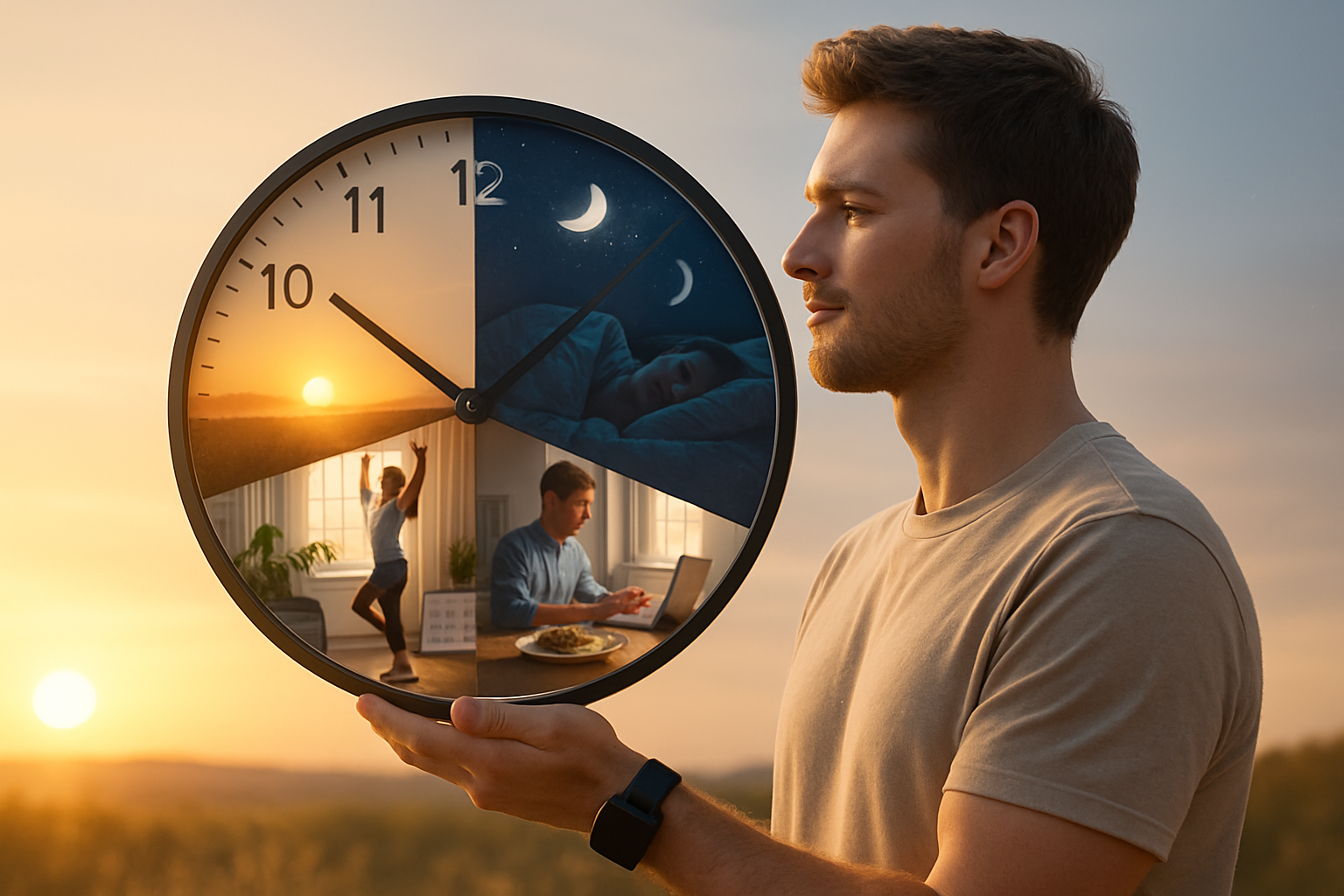Chronobiology: Aligning Your Life with Nature's Rhythms
Imagine waking up each day feeling refreshed, energized, and in perfect harmony with the world around you. What if your daily routines could be synchronized with your body's natural rhythms, leading to improved health, productivity, and overall well-being? Welcome to the fascinating world of chronobiology, where science meets nature to revolutionize our approach to health and wellness.

Our bodies have evolved over millions of years to function optimally in sync with these natural rhythms. However, modern lifestyles often disrupt these delicate balances, leading to a host of health issues. By understanding and harnessing the power of chronobiology, we can realign our lives with nature’s rhythms and unlock a new level of health and vitality.
The Cellular Clock: Timekeepers Within
At the molecular level, our biological rhythms are controlled by a complex network of genes and proteins that form a feedback loop. This cellular clock is present in nearly every cell of our body, orchestrating a symphony of physiological processes. The suprachiasmatic nucleus (SCN) in the brain acts as the master clock, synchronizing all these cellular clocks throughout the body.
Recent research has shed light on the intricate workings of these cellular clocks. Scientists have discovered that disruptions to this internal timekeeping system can contribute to various health issues, including metabolic disorders, cardiovascular diseases, and even certain types of cancer. By aligning our lifestyles with these natural rhythms, we can potentially prevent or mitigate these health risks.
Chronotypes: Understanding Your Personal Rhythm
Not all biological clocks tick to the same beat. Chronotypes refer to individual differences in circadian rhythms, often categorized as early birds (morning larks), night owls, or those in between. Your chronotype influences your optimal times for sleep, productivity, exercise, and even meals.
Identifying your chronotype can be a game-changer in optimizing your daily routines. For instance, night owls may find they perform better on cognitive tasks later in the day, while early birds might excel in morning workouts. By aligning your activities with your natural chronotype, you can enhance your performance, mood, and overall well-being.
Chronomedicine: Timing Is Everything
The field of chronomedicine is revolutionizing healthcare by considering the timing of medical interventions. Research has shown that the efficacy and side effects of many medications can vary depending on when they are administered. For example, some blood pressure medications are more effective when taken at night, while certain cancer treatments may be optimized by timing them with the patient’s circadian rhythm.
This approach extends beyond medication. Chronotherapy in cancer treatment involves timing radiation or chemotherapy to coincide with when cancer cells are most vulnerable and normal cells are less susceptible to damage. As our understanding of chronobiology deepens, personalized treatment plans based on individual circadian rhythms could become the norm in medical practice.
Optimizing Your Environment for Circadian Health
Creating an environment that supports your natural rhythms is crucial for overall health. Light exposure plays a pivotal role in regulating our circadian rhythms. Exposure to bright light in the morning helps reset our internal clocks, while avoiding blue light from screens in the evening promotes better sleep.
Beyond light, temperature also influences our circadian rhythms. Our body temperature naturally drops as we prepare for sleep, so maintaining a cool sleeping environment can enhance sleep quality. Additionally, timing your meals can impact your circadian rhythms. Some studies suggest that aligning your eating schedule with your body’s natural rhythms may improve metabolic health and weight management.
Chronobiology in Action: Practical Tips for Everyday Life
-
Maintain a consistent sleep schedule, even on weekends
-
Expose yourself to natural light early in the day
-
Avoid caffeine and heavy meals close to bedtime
-
Use warm, dim lighting in the evening to signal your body it’s time to wind down
-
Exercise at consistent times each day to reinforce your circadian rhythm
-
Consider your chronotype when scheduling important tasks or meetings
By embracing the principles of chronobiology, we can tap into the wisdom of our body’s natural rhythms. This holistic approach to health and wellness offers a path to improved energy, productivity, and overall quality of life. As research in this field continues to evolve, the potential for personalized, timing-based health strategies grows ever more promising. Aligning our lives with nature’s rhythms isn’t just about feeling better—it’s about living in harmony with the fundamental cycles that have shaped life on Earth for millennia.






